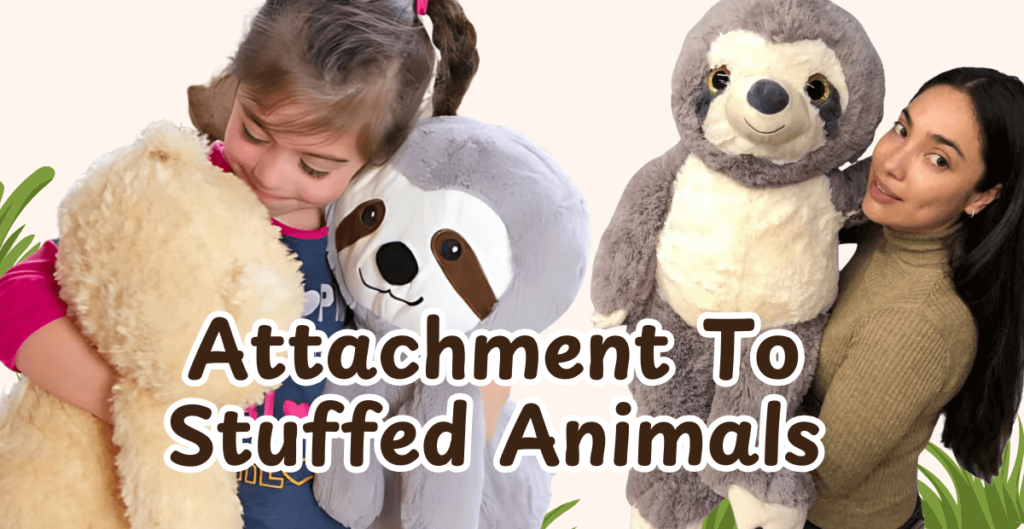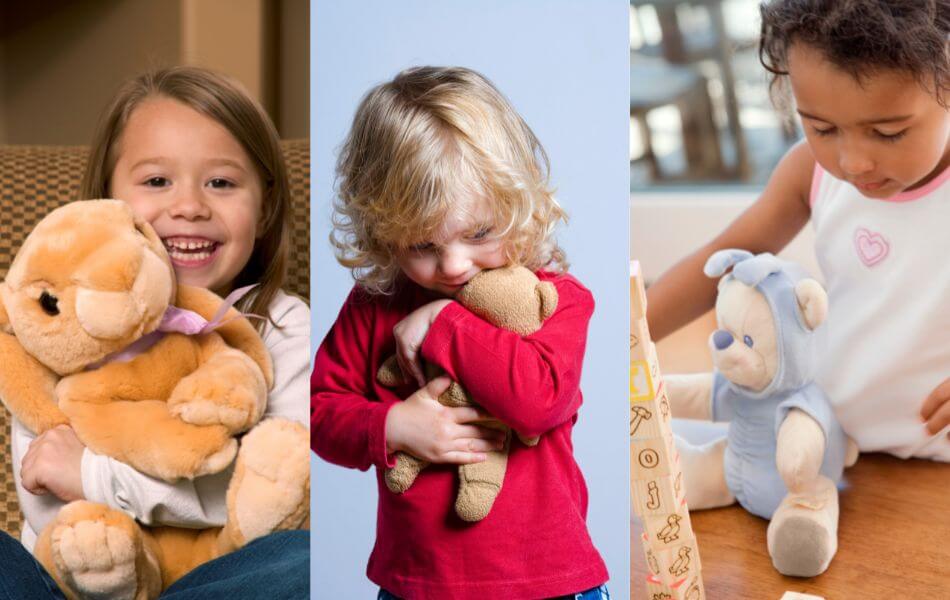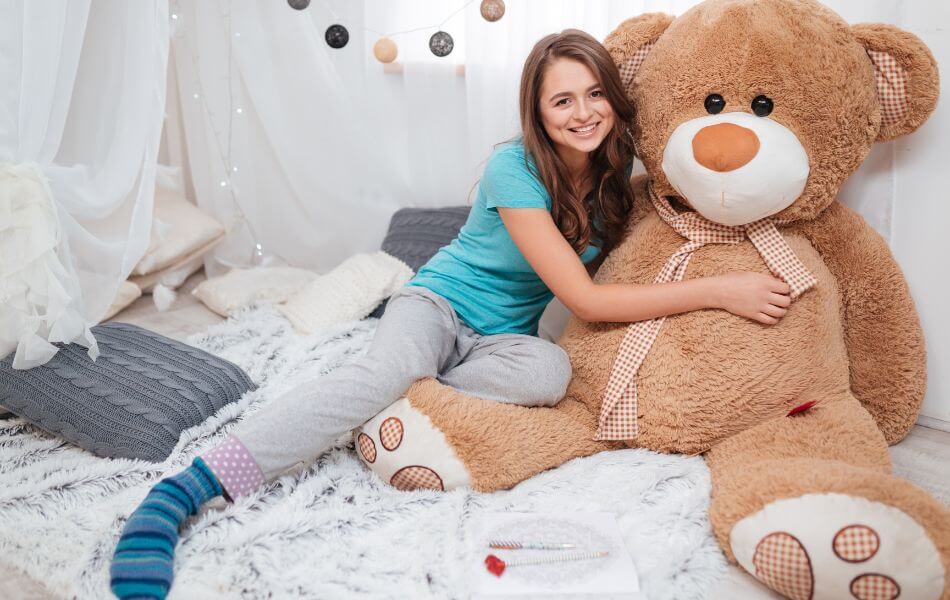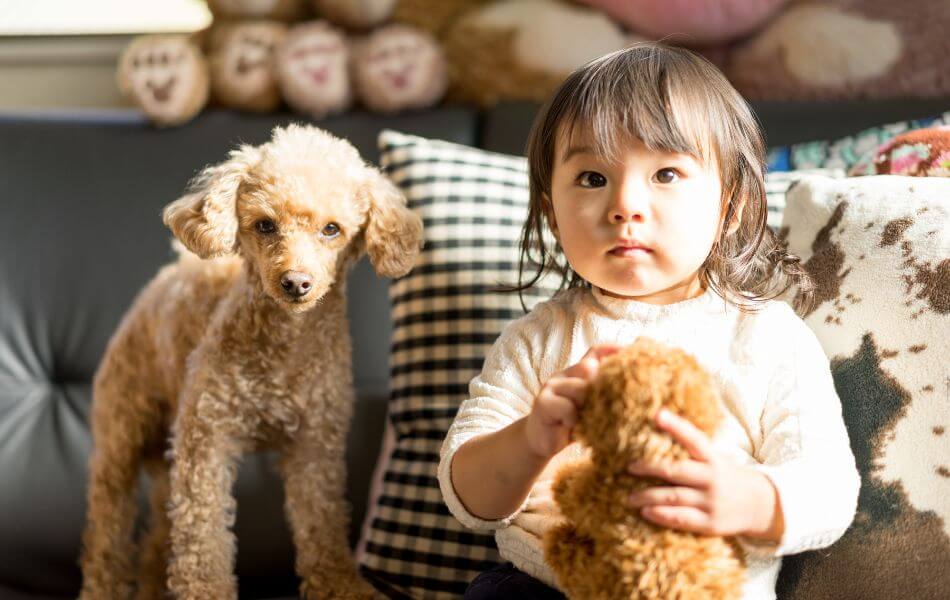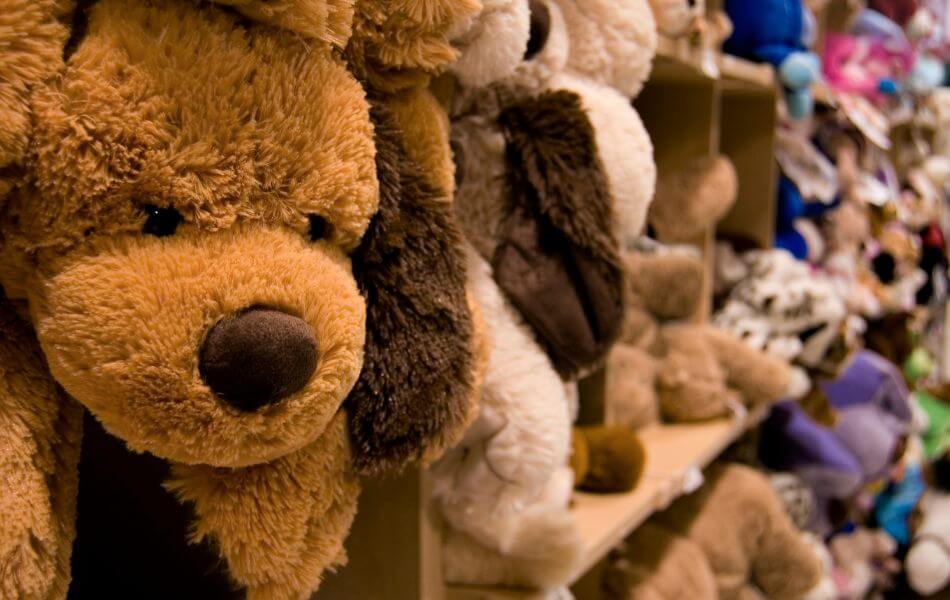Blog
Attachment To Stuffed Animals
🧸The Psychology Behind Attachment to Stuffed Animals in Kids and Adults🧠
The Psychology Behind Attachment to Stuffed Animals
Stuffed animals often act as transitional objects, providing comfort and stability, especially during early childhood. These inanimate objects help children cope with new situations like starting daycare, sleeping alone, or facing unfamiliar environments. A stuffed animal’s soft texture and familiar presence can ease anxiety and fears, giving children a sense of security in an unpredictable world.
The Transitional Objects Theory, introduced by British clinical psychologist Donald Winnicott, explains this connection. According to this theory, transitional objects like stuffed animals help children shift from complete dependence on their parents to developing independence. These objects serve as sources of comfort, offering reassurance as children begin to navigate the world on their own. When a child clings to their childhood teddy during bedtime or carries it everywhere, they learn to self-soothe and manage emotions like fear and loneliness.
However, attachment to stuffed animals doesn’t always end in childhood. Many adults are attached to stuffed animals from their past, finding comfort in these familiar objects. For some, these stuffed animals from their childhood represent happy memories and a connection to simpler times. Adults often find comfort in their teddy bears or plush toys during stressful periods like moving to a new city, experiencing a breakup, or coping with loss.
What Psychology Says About Adults with Stuffed Animals
According to mental health experts, adults with stuffed animals may benefit from reduced stress and anxiety. Studies show that keeping a stuffed animal close can promote emotional stability, especially for those dealing with anxiety, depression, or PTSD. The simple act of cuddling a plush toy can help people fall asleep faster and feel calmer. For individuals on the autism spectrum, autism attachment to stuffed animals can provide essential sensory comfort and help with emotional regulation.
Ultimately, whether for children or adults, the attachment to stuffed animals highlights our natural need for emotional support and comfort. These cuddly companions are essential to mental health and emotional well-being throughout life.
Why Are Children So Attached to Their Stuffed Animals?
Promotes Stability and Comfort
Many kids develop a strong attachment to stuffed animals, often becoming inseparable from a specific teddy bear or plush toy. Being without their favorite cuddly companion, especially at bedtime, can feel like a disaster. While this might frustrate parents, it’s a normal part of child development and reflects emotional well-being. This child attachment to stuffed animals helps children deal with object permanence—the understanding that people or things still exist even when out of sight. For instance, even if a parent is in another room, a child might feel uneasy without seeing them.
Stuffed animals act as transitional objects, helping kids move from constant parental presence to feeling independently secure. Plush toys’ soft, fuzzy texture naturally soothes children, making them reliable sources of comfort during uncertain times.
Encourages Nurturing Behavior
Stuffed animals are essential in helping children develop nurturing and empathy skills. In play therapy, children are encouraged to care for their stuffed toys by pretending to feed, dress, or tuck them into bed. This role-playing helps kids learn how to express affection and responsibility—key skills for future relationships. If you’ve ever seen a child hosting a picnic for their teddy bear, you’ve witnessed this behavior in action. By caring for their plush toys, children practice self-soothing and recreate the comfort they receive from their parents.
Develops Emotional and Social Skills
Studies show that kids develop deep emotional attachments to stuffed animals because they offer security and familiarity. These inanimate objects give children a safe space to explore social skills without fear of criticism or judgment. Unlike adults, stuffed animals don’t correct or criticize, allowing kids to control their interactions and build confidence.
Stuffed animals also improve emotional intelligence. For example, when a child throws their teddy bear out of bed, the bear doesn’t react, but the child may feel guilty or empathetic. This helps children recognize emotions in themselves and others, teaching them to navigate their emotional world healthily.
Why Do Adults Stay Attached to Stuffed Animals?
Nostalgia and Sentimental Value
For many adults, stuffed animals from their childhood are more than just toys—they’re cherished mementos filled with memories. These plush toys remind people of more straightforward, happier times and offer a comforting link to the past. Whether it’s a childhood teddy from a grandparent or a stuffed toy from a special milestone, these items’ nostalgia and sentimental value can be powerful. Holding onto them provides a sense of continuity and emotional warmth, especially during stressful times.
Emotional Support for Adults
Stuffed animals provide surprising emotional support for adults, particularly during difficult times. Life changes like moving to a new city, going through a breakup, or losing a loved one can trigger feelings of loneliness and anxiety. Many adults attached to stuffed animals find comfort in their familiar plush toys during these moments. The softness and familiarity of a stuffed animal can create a sense of security, easing transitions and offering emotional grounding when everything feels uncertain.
Mental Health Benefits
Beyond nostalgia, stuffed animals can play an essential role in mental health support for adults dealing with anxiety, depression, or PTSD. Cuddling a plush toy can trigger the release of oxytocin, a “feel-good” hormone that reduces stress and promotes relaxation. Many clinical psychologists use stuffed animals in therapy sessions to help individuals reconnect with emotions or process trauma safely. For people on the autism spectrum, autism attachment to stuffed animals provides sensory comfort and emotional regulation.
What Psychology Says About Adults with Stuffed Animals
Psychology acknowledges the advantages of stuffed animals for adults. Whether it’s to help them fall asleep, reduce anxiety, or cope with trauma, adults with stuffed animals experience lower stress levels and increased emotional stability. Far from being a childish habit, maintaining an emotional attachment to stuffed animals can be a healthy coping strategy that offers comfort and support in both everyday life and challenging situations.
In short, the attachment to stuffed animals doesn’t end in childhood. These cuddly companions continue to offer emotional support, comfort, and a deep connection to cherished memories throughout life.
When Attachment to Stuffed Animals Becomes a Concern
While attachment to stuffed animals is usually a healthy and comforting part of both childhood and adulthood, there are times when it may signal more profound emotional challenges. Understanding when this bond shifts from standard comfort to emotional dependency is essential for maintaining mental health and emotional well-being.
Identifying Unhealthy Attachments
Attachment to stuffed animals becomes a concern for both children and adults when it interferes with daily life. For example, suppose a child refuses to go to school or attend sleepovers because they can’t be separated from their teddy bear. In that case, it might be a sign of anxiety or insecurity. This level of dependency could mean the child struggles to find comfort in new environments without their transitional object.
Similarly, adults attached to stuffed animals may experience problems if the plush toys are their only source of comfort. If an adult cannot manage stress or anxiety without their stuffed toy, or if being without it causes panic or distress, it could indicate unresolved emotional issues. This might be a sign of underlying conditions, like anxiety disorders or trauma, that need to be addressed.
When to Seek Professional Advice
If emotional attachment to stuffed animals starts to affect social relationships or daily functioning, it may be time to seek help from a clinical psychologist or mental health professional. Children who rely solely on their stuffed animals for emotional support and avoid interacting with peers may need assistance building social skills and confidence.
For adults with stuffed animals who feel isolated, overly anxious, or unable to cope without their childhood teddy, therapy can help uncover the root causes. A professional can guide individuals through healthier coping strategies and emotional growth, primarily if the attachment stems from trauma, anxiety, or other mental health challenges. In some cases, autism attachment to stuffed animals may provide necessary sensory comfort, but balancing this attachment with other coping tools is essential.
Helping Children Transition from Their Stuffed Animals
For children, moving away from child attachment to stuffed animals doesn’t have to happen overnight. Gradual transitions are key to maintaining a sense of security while promoting independence. Setting gentle boundaries—such as allowing the stuffed animal at bedtime but not at school—can help ease the shift.
Introducing new sources of comfort, like a favorite blanket or book, can also support this transition. Encouraging children to participate in social activities helps them build confidence without always needing their cuddly companions. Through nurturing relationships and experiences, children can develop independence while feeling emotionally supported.
5 Advantages of Stuffed Animals for Adults
1. To Get Better Sleep 😴
For many adults, sleeping with a stuffed animal is all about comfort. Some people hold onto this habit from childhood, while others find it hard to fall asleep without their favorite plush toy. Psychologists agree that using a stuffed animal to improve sleep quality is expected. Unlike unhealthy habits like alcohol or medication, cuddling a plush toy is a safe, soothing way to relax and drift off to sleep.
2. To Lessen Loneliness 🤗
Stuffed animals are known to reduce feelings of loneliness in children, and this effect can continue into adulthood. Humans are naturally social beings, and we often seek comfort when we feel alone. While plush toys can’t replace human connection, they can help ease the anxiety of spending time alone, especially at night.
3. To Help With Trauma 💔
Many people don’t realize that stuffed animals can help heal emotional wounds from past trauma. For survivors of abuse or neglect, caring for a plush toy can provide comfort and promote healing. This process, known as “re-parenting,” allows individuals to show love and care to the stuffed animal, helping them reconnect with their emotions and feel more secure.
4. To Bring Back Childhood Memories 🧸
Having a stuffed animal nearby can trigger happy childhood memories—whether cuddling with family or feeling safe and secure. These nostalgic feelings offer emotional support and continuity, especially during stressful times. Reminiscing about positive experiences can also boost your mood and create a sense of comfort in the present.
5. To Reduce Stress 🌿
Cuddling or petting a stuffed animal can help lower stress levels. Just like interacting with real pets, hugging a plush toy can reduce cortisol, the hormone linked to stress. Lower cortisol levels are associated with better heart health and a lower risk of weight gain. So, squeezing your favorite teddy bear isn’t just comforting—it’s good for your health too!
Read More: Benefits Of Weighted Stuffed Animals
FAQs
Is Owning a Stuffed Animal Stigmatized?
It varies. You may be concerned about the stigma associated with your attachment to plush toys as an adult because they are typically associated with children.
If you’re still not persuaded that it’s appropriate, keep in mind that 43% of respondents freely acknowledged still owning childhood teddies.
Of course, you still have to think about the role the stuffed animal plays in your life. Do you find it difficult to build deeper relationships with others and turn to your teddy bear for solace instead? Is shame a factor in your relationship with plush toys? You need to be on the lookout for those few items.
Is it Healthy For a Child To Be Attached To a Toy?
Yes, it is; in fact, stuffed toys help children get a feeling of what the world of interactions is like.
Is it Typical For Adults To Develop Strong Emotional Bonds With Plush Animals?
Yes, it is quite common for adults to have an emotional connection to stuffed animals, especially if they served as comforting companions for them as children. They offered security and comfort as transitional items, which may have benefited your psychological health as an adult.
At What Age Should a Child Stop Carrying a Stuffed Animal?
Well, that’s a tricky question, as there is no set age when a child should stop carrying a stuffed animal. Every child is different and may have varying levels of attachment to their toy. It’s perfectly normal and healthy for a child to find comfort in their stuffed animal, and there’s no need to rush them into giving them up. Ultimately, when a child feels ready to let go of their toy, it should be their decision, not anyone else’s.
Is it Weird For Adults To Have a Stuffed Animal?
Adult guys sleeping with plush animals is not odd, no! According to the same survey cited above, 84 per cent of the 43 per cent of respondents who acknowledged lying in bed with weighted plush animals were guys.

